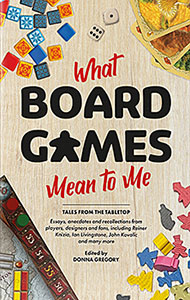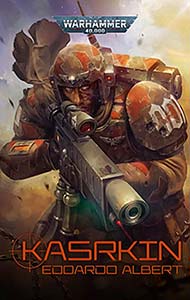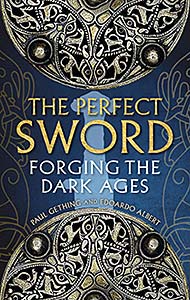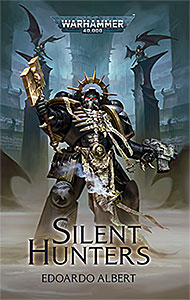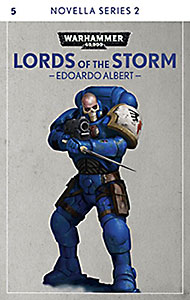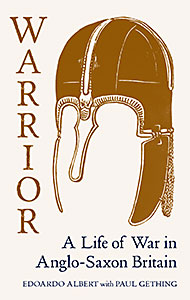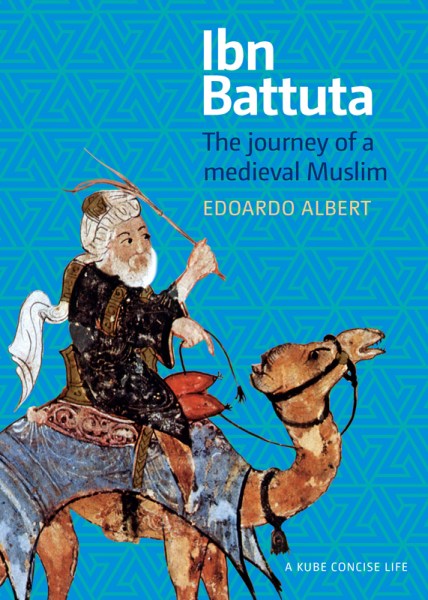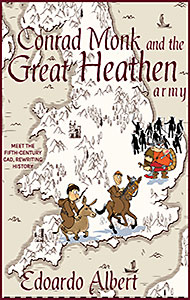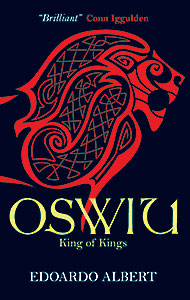Conrad is a monk, but he has become a monk through trickery and against his will. So, it is fair to say that his heart isn’t really in it. Conrad is also clever, charming, entirely self-serving, self-absorbed and almost completely without scruple — but in Anglo-Saxon England, when the Danish invaders come calling, those are very helpful attributes to have.
By his side throughout is the gentle and honourable Brother Odo, a man so naturally and completely good that even animals sense it. He is no match of wits for the cunning Conrad but can he, perhaps, at least encourage the wayward monk to behave a little better?
‘If I was being invaded by raping, massacring Vikings, Conrad would be the perfect companion to lighten the mood.’ – Stephen Clarke, author of 1000 Years of Annoying the French and The French Revolution & What Went Wrong.
First Published 20 August 2018 by Endeavour Quill.
Excerpt
“Ride!” I yelled, jabbing my heels as
hard as I could into the pony’s flanks.
The beast, exhausted at the end of a day
trudging through mud, barely even raised its head, but continued plodding along
at exactly the same pace as before.
Brother Odo patted the beast’s neck and
looked up at me.
“Don’t worry. They are still far behind.
I think we will get to the king’s hall first and have our choice of the warm
places by the fire.” I looked down at the monk, now offering some words of encouragement
to my beast. It was probably just as well he was looking at the horse, or he would have
seen me gibbering with fear.
“D — Danes,” I stuttered.
“What?” said Brother Odo.
“They — they’re Danes,” I repeated.
Brother Odo looked up at me, wide eyed
and then, without a single word or glance, he was off, running pell-mell down the
track towards Beodricesworth,
his habit hitched up to his knees.
“Wait!” I yelled, “wait, God damn it!”
while I kicked my pony’s flanks to no effect.
At my shout, Brother Odo stopped, cast an
agonised glance over his shoulder, then came running back to me.
“The beast is blown,” I said, getting
down from the pony as Brother Odo reached me. “You’ll have to carry me.”
Before Brother Odo could say anything,
I’d jumped on his back. His arms had risen to take hold of my legs without
thought — a sure indication of many games played with the children of the
monastery when Abbot Flory wasn’t watching — and I kicked his flanks with all
the vigour of a man trying to escape an oncoming column of Danes.
Obedient to the command, Brother Odo
began trotting towards Beodricesworth.
Another kick took him to a canter, and a third had him galloping.
But before we had gone more than fifty
yards I heard the thump of closing hoof beats.
I looked round, feeling the fear gorge
rise up my throat as my back tickled at the prospect of a spear head being
plunged into it, and saw my pony galloping up after us. Apparently, seeing its
friend Brother Odo galloping away, it had gathered its remaining strength and
followed.
For a moment I thought of transferring
back to the pony. But Brother Odo was fresher. I stayed on him.
So, running before the storm, we arrived at the
hall of Edmund, King of the East Angles.
